Daniel L. Smith-Christopher Quotes & Sayings
Enjoy the top 5 famous quotes, sayings and quotations by Daniel L. Smith-Christopher.
Famous Quotes By Daniel L. Smith-Christopher
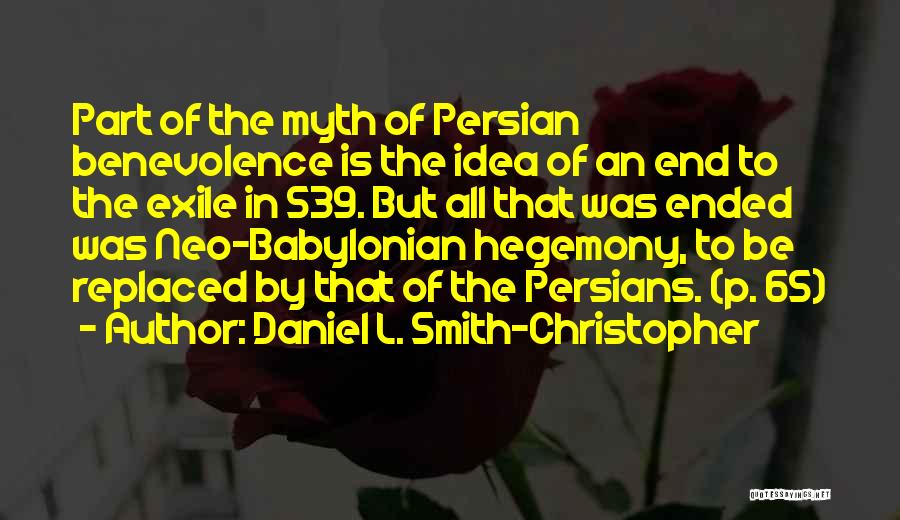
Part of the myth of Persian benevolence is the idea of an end to the exile in 539. But all that was ended was Neo-Babylonian hegemony, to be replaced by that of the Persians. (p. 65) — Daniel L. Smith-Christopher
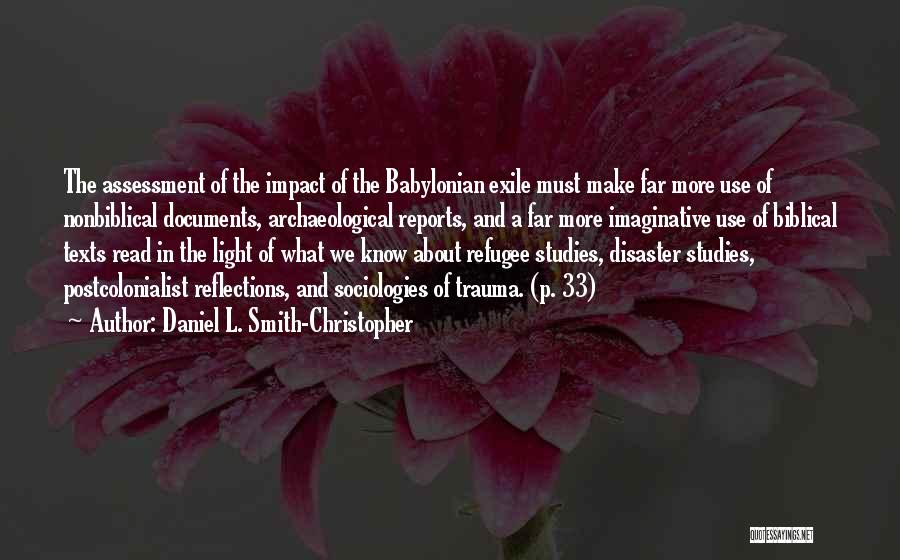
The assessment of the impact of the Babylonian exile must make far more use of nonbiblical documents, archaeological reports, and a far more imaginative use of biblical texts read in the light of what we know about refugee studies, disaster studies, postcolonialist reflections, and sociologies of trauma. (p. 33) — Daniel L. Smith-Christopher
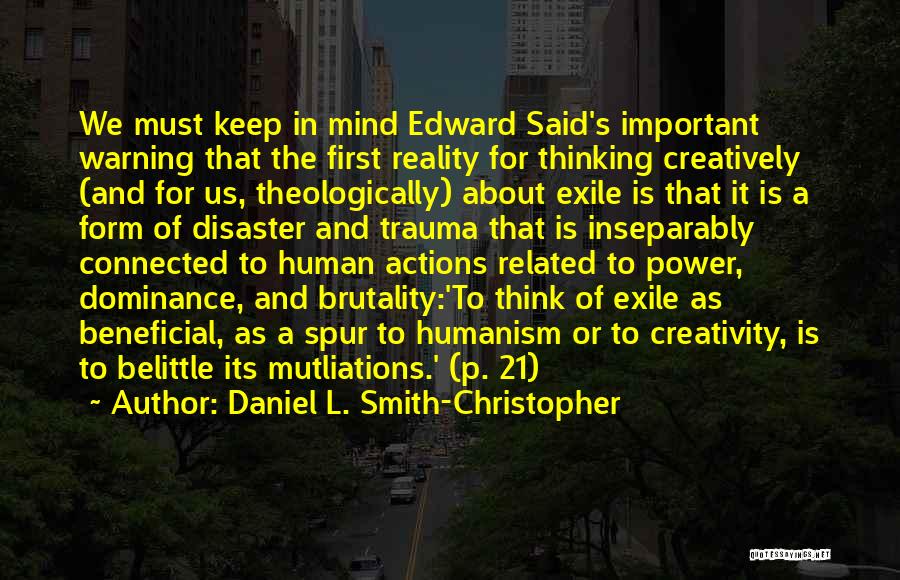
We must keep in mind Edward Said's important warning that the first reality for thinking creatively (and for us, theologically) about exile is that it is a form of disaster and trauma that is inseparably connected to human actions related to power, dominance, and brutality:
'To think of exile as beneficial, as a spur to humanism or to creativity, is to belittle its mutliations.' (p. 21) — Daniel L. Smith-Christopher
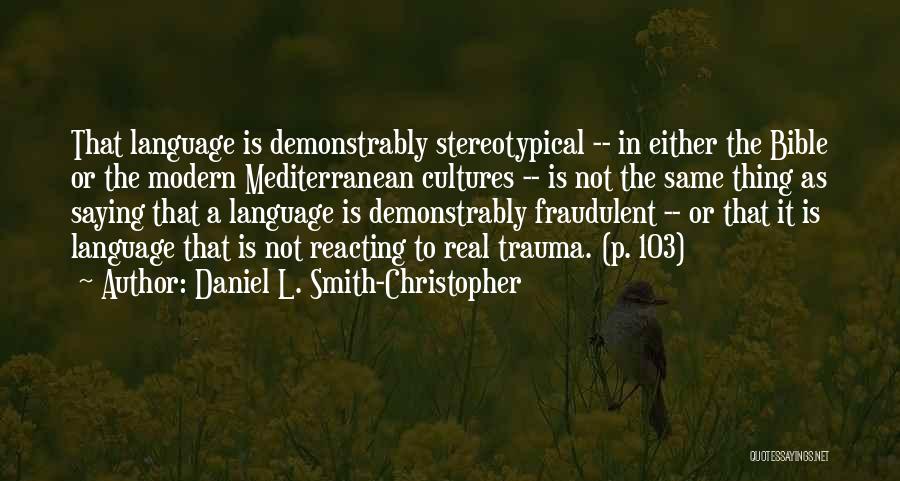
That language is demonstrably stereotypical -- in either the Bible or the modern Mediterranean cultures -- is not the same thing as saying that a language is demonstrably fraudulent -- or that it is language that is not reacting to real trauma. (p. 103) — Daniel L. Smith-Christopher
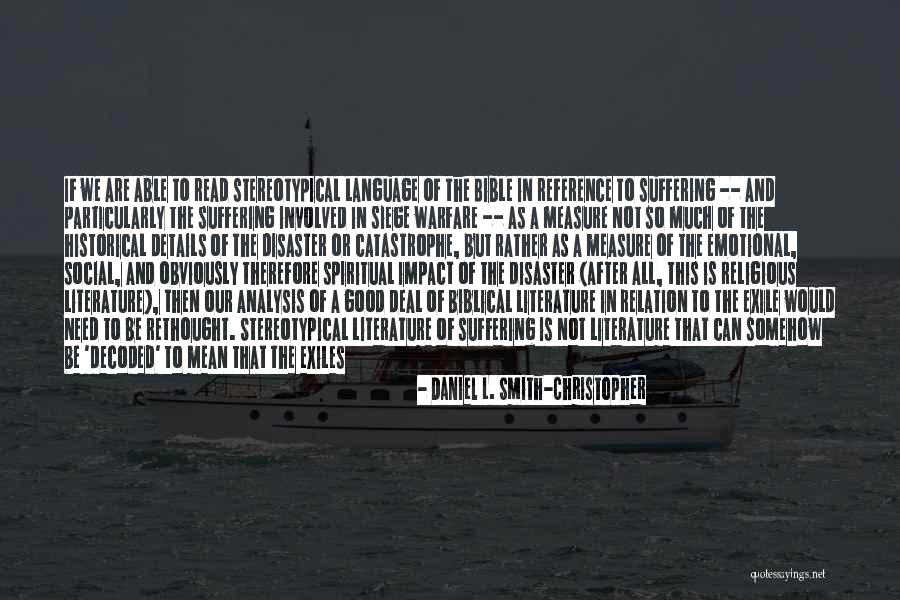
If we are able to read stereotypical language of the Bible in reference to suffering -- and particularly the suffering involved in siege warfare -- as a measure not so much of the historical details of the disaster or catastrophe, but rather as a measure of the emotional, social, and obviously therefore spiritual impact of the disaster (after all, this is religious literature), then our analysis of a good deal of biblical literature in relation to the exile would need to be rethought. Stereotypical literature of suffering is not literature that can somehow be 'decoded' to mean that the exiles actually lived in Babylonian comfort. (p. 104) — Daniel L. Smith-Christopher





